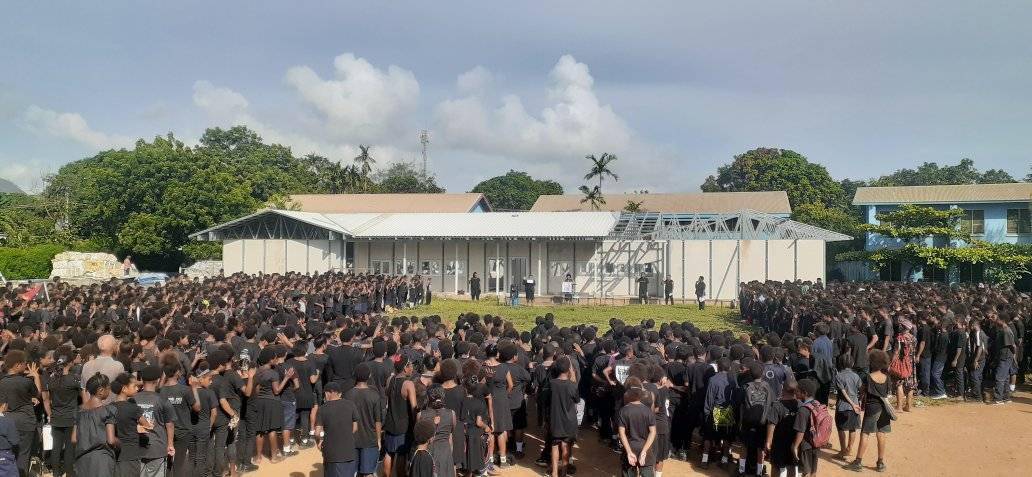Students of a primary school in Port Moresby, Papua New Guinea are paying their teachers their salaries every fortnight since the commencement of the school year.
Each week, the 2800 students contribute K1 (US$0.26) to pay six teachers who have been teaching without receiving their pay.
Philip Aravure Primary School in Gerehu endorsed the idea during a Parent and Citizen meeting year.
The school’s head teacher Robert Silas and his deputy Dales Ipara in an interview with Post-Courier said the school had been doing that every fortnight when the arrangement was endorsed.
“In the beginning of this year, we had 12 teachers teaching without pay being looked after under this agreement. As time went on some were restored.
We are now left with six teachers who will be paid this pay fortnight (also the last time for this year children will be paying as they will close for the academic year next week,” Ipara said.
“I cannot let those hardworking teachers of mine to go without pay. I’m always hard on them to deliver and I must in return give them at least something,” she added.
She said these teachers contribute immensely to the wellbeing of the students and the school and they need money for bus fare for work, food and basic necessities in the city.
“Each teacher gets at least K200 (US$54) minimum every fortnight depending on how much was collected or contributed from the students’ K1 (US$0.26) donation.
We top it up with small profit made from the school canteen plus the market tax collected from the mothers selling lunch at school vicinity,” said Ipara.
“The National Government’s policies do not meet the demand and the need we have in the school. We have high students’ enrollment and overcrowding of classrooms because of the Government Tuition Fee Funding Policy.
My request five years ago to have the school upgraded from level seven to eight with 17 new positions created was left unattended to until last month approval was given with four new positions created.
This is still not enough,” Ipara told Post-Courier. She said the idea of students contributing K1 (US$0.26) was the initiative of the parents agreed from the Parents and Citizen’s meeting last year as they were concerned about the quality of their children’s education.
The school like every other school is burdened with the increasing enrollments resulting in high teacherstudents ratio of 80 plus students.
This has increased from four classes of a grade to five, however, five streams are still not enough in comparison with staff the staff ceiling.
“The school is over populated that the recess and the lunch breaks for the lower primary are separated from the upper primary.
Which means there are four breaks in a day. Water usage in the school is extremely high.
The water taps run whole day accumulating water-bill costing more than one thousand kina.
Apart from the cost of water, we need to pay for power as well,” Ipara said.
“We teachers also contribute to use power. Teachers also pay to charge their phones and other electronic gadgets. Nothing is for free,” Ipara said. She said the school is still struggling with the insufficient teaching and learning resources with hopes to get the attention of appropriate authorities.
